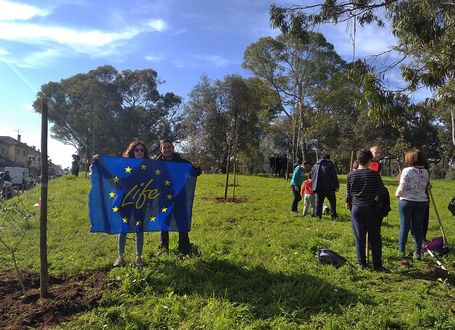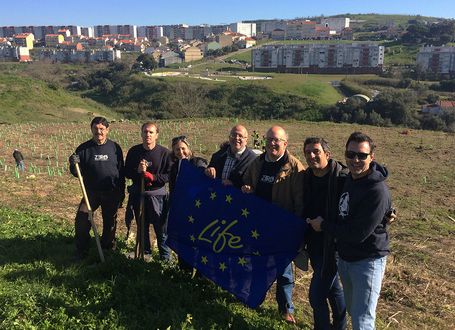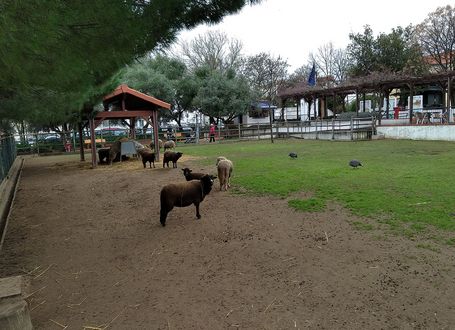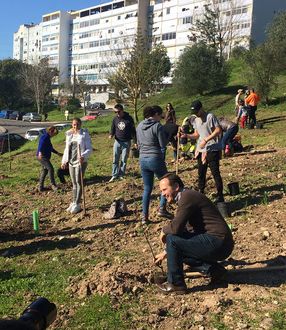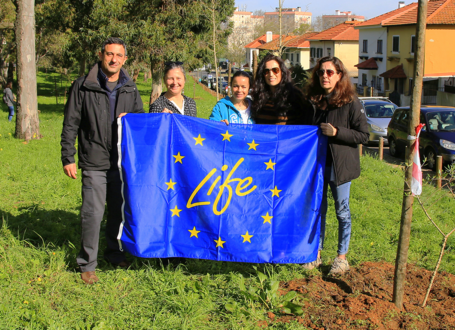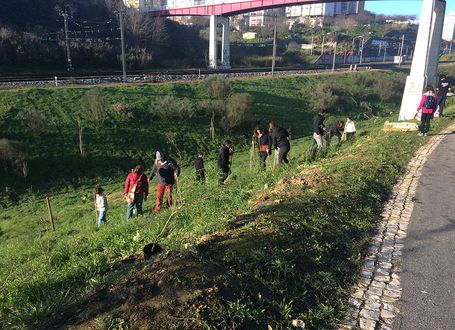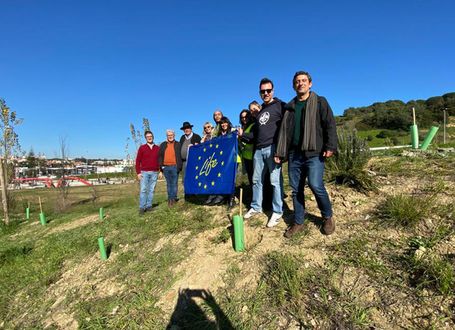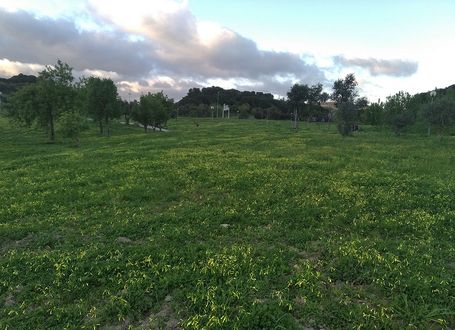Projections of increasing temperatures and decreasing average of annual rainfall over this century make it urgent to adapt cities to climate change.
LIFE LUNGS (acronym for «Towards a more resilient Lisbon UrbaN Green InfraStructure as an adaptation to climate change») is a project that aims to contribute to making the city more resilient to rising temperatures, mitigating the effects of heat waves and water scarcity, which are expected to be more frequent in the near future, being in line with the climate policies adopted by the municipality. The project is implemented between September 2019 and August 2025.
Implementation actions
LIFE LUNGS encompasses 6 implementation actions
Sowing biodiverse rainfed meadows that change with the seasons
Instead of grass that needs water every day, biodiverse rainfed meadows follow the seasons, as well as providing food for sheep and pollinating insects. This action encompasses the installation, improvement, and operation of biodiverse rainfed meadows in areas of Parque Bela Vista and Alto da Ajuda, as a more adapted alternative to climate change than conventional urban lawns.
The meadows are in need of a trim? Bring the sheep
A traditional method that has fallen into disuse, sheep have returned to Lisbon to replace the machines used for vegetation control. Inserting themselves in the ecosystem, the flock also helps in soil conservation. On site they are accompanied by a shepherd able to communicate with the population, thus contributing to awareness and dissemination of information.
Water management measures
Water scarcity and heavy precipitation events are two of the main impacts of climate change in Lisbon. This action aims to combat them with water management measures.
Increase the density of trees and bushes in Lisbon's urban green areas
Green infrastructure contributes directly to climate adaptation. With rising average temperatures, the urban heat island effect is a strong threat. Cities are better adapted the more consolidated their green infrastructure is. Shade has a concrete action in reducing surface temperature, and trees are considered one of the best solutions to combat the urban heat island effect.
This action involves the mass planting of trees and shrubs in various areas of the city, including in streets where they can provide shade directly to buildings and sidewalks.
“Open Desk Office” to foster project replication and transfer in the Lisbon Metropolitan Area
This action encompasses the maximization of the project results in other urban green areas, areas not directly covered by the project that belongg to the Lisbon Municipality or are private. Adaptation to climate change is more successful if the area of green infrastructure adopting the same type of solutions is bigger.
Replication of the project results in other cities or locations
European cities, and specifically those in southern Europe, face common climate adaptation challenges: temperature rise, risk of water scarcity or extreme flooding.
Green infrastructure can play a strong role in climate regulation and the LIFE LUNGS project, as a demonstration project, wants to set an example on an international scale. This action includes the transfer and replication of the project results to interested national and European cities, namely the municipality of Málaga, partner of the project.




